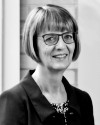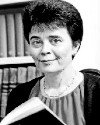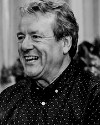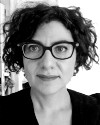 |
Ayres-Bennett, Wendy (Emerita)Wendy's research interests are: History of the French language; Variation and change in French, from the sixteenth century to the present day; History of linguistic thought; Linguistic standardisation and codification; Language policy and ideology |
 |
Jones, Professor MariProfessor Mari Jones specialises in French linguistics, especially language death theory and dialectology. She is interested in all aspects of language change, dialectology, language contact and questions of standardisation. Her research has focused particularly on Welsh, Breton and - at present - Insular and Mainland Norman. |
 |
Ledgeway, AdamAdam Ledgeway's research interests include the comparative history and morphosyntax of the Romance languages, Italian dialectology, Latin, Italo-Greek, syntactic theory, linguistic change and language contact. His research is channelled towards bringing together traditional Romance philological scholarship with the insights of recent linguistic theory. |
 |
McDougall, KirstyDr McDougall is a phonetician, with particular interests in speaker characteristics, forensic phonetics, and the phonetic realisation of varieties of English. Her research has, among other things, highlighted the importance of dynamic as opposed to static features of speech (particularly formant frequencies) for characterising differences between speakers, and developed robust techniques for the selection of foils for voice parades. Dr McDougall is also interested in sociophonetic variation in English, and has undertaken various studies of consonant realisation in Australian English. |
 |
Roberts, IanProfessor Roberts’ research is in theoretical linguistics, more specifically in comparative syntax. His work is set against the background assumptions argued for by Noam Chomsky: that there exists a specific human cognitive capacity for language which is present at birth and requires simple environmental stimulation in order for linguistic competence in the mother tongue to develop during the early years of life. The theory of this capacity is known as Universal Grammar. |
 |
Sitaridou, IoannaIoanna's research interests are: dialectal and diachronic syntax: word order phenomena, null subjects, complementation, infinitives, null objects, subjunctive obviation; Micro-variation; Acquisition (especially L2 and heritage languages) and language change; Language Contact; Syntactic phylogenies and reconstruction |
